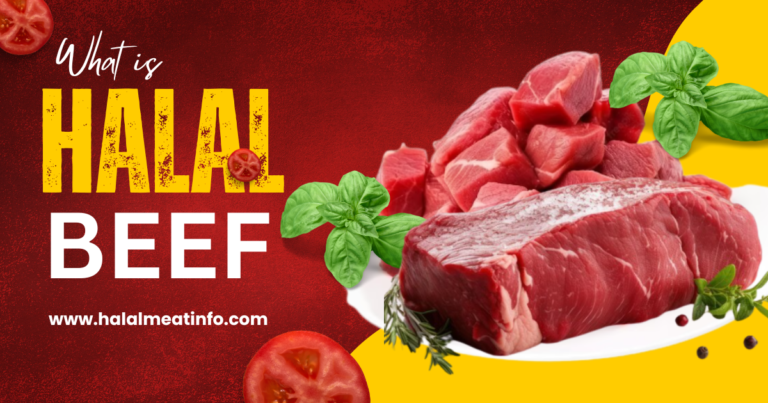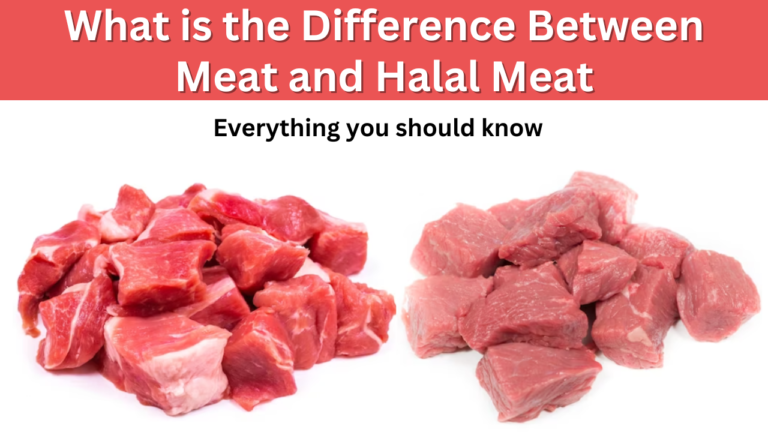Do People Eat Giraffe: Unveiling the Unusual
Do you find yourself curious about diverse eating habits across various cultures? One particular inquiry that often captures the attention of adventurous minds is: Do people eat giraffes? While these tall creatures have long been respected in the wild, rumors and myths circulate around the idea of them appearing on the dinner table.
In this blog post, we will explore and uncover the truth behind the consumption of giraffe meat. Join us on a journey as we delve into the religious, cultural, ethical, and practical aspects surrounding this intriguing topic, distinguishing fact from fiction. From the plains of Africa to the realm of culinary curiosity, let’s unravel the surprising world of giraffe consumption.

Introduction to Giraffe
Giraffes are a wonder of nature. Standing tall, they grace the African landscape with elegance. Their unique design, marked by long necks and legs, allows them to reach tree tops, their primary food source. With a complex social structure, giraffes often form groups, showcasing a fascinating blend of individual and collective behaviors. Their tongues, a peculiar shade of blue, are long enough to navigate thorny acacia branches. Let’s delve into the captivating world of giraffes, and learn more about these intriguing creatures.
What is Giraffe Meat Called?
In the world of exotic meats, giraffe meat does not carry a unique name, unlike venison for deer or beef for cattle. Typically, it is simply referred to as giraffe meat. Although not common or commercially available, it occasionally features in the culinary practices of certain cultures or communities where giraffes are indigenous. Now that we know what it’s called, let’s delve deeper into the context where giraffe meat is consumed.
Do People Eat Giraffe Meat
Historical Context of giraffe consumption
Historically, there have been instances of giraffe consumption. Let’s explore a few.
In ancient times, the Romans had a taste for exotic animals, including giraffes. They were known as ‘camelopards’ and were believed to be a hybrid of a camel and a leopard due to their long necks and spotted coats. These majestic creatures were not a regular part of the Roman diet, but they were occasionally served at grand feasts to display wealth and power.
Coming to African cultures, for them, hunting giraffes was often a matter of survival rather than luxury. Tribes like the Shona and the San people occasionally hunted giraffes for their meat when other food sources were scarce. Giraffe meat was part of their diet, and giraffe hides were used to make clothes and shields.
Current Scenario for Giraffe Consumption
In the present day, giraffe hunting and meat consumption is not widespread, but it does occur in certain regions. In some African countries like Tanzania and Botswana, giraffe hunting is legal and regulated by governing bodies. Conversely, in nations such as Kenya and Uganda, hunting giraffes is illegal due to their classification as a protected species.
Even though the legal hunting of giraffes can occur under specific conditions, the illegal poaching of these majestic animals is a serious concern. Poaching typically arises due to a demand for giraffe body parts like their skin, meat, and even tail hair, which is used in jewelry making.
Why Do People Eat Giraffe?
In many cultures, giraffe meat is considered a delicacy and has been consumed for centuries. In places like Africa, where giraffes are native, they have been used as a source of food and sustenance by various tribes and communities. The Maasai people in Kenya and Tanzania are known to consume giraffe meat as part of their traditional diet.
Nutritional Value of Giraffe Meat | Giraffe Meat Health Benefits
Giraffe meat provides a rich source of protein, iron, and essential nutrients. It is also low in fat and cholesterol, making it a healthier option compared to other red meats. In certain African communities, giraffe blood is believed to possess medicinal properties, consumed for its presumed healing advantages. Nevertheless, there’s no scientific evidence supporting this belief.
Hunting and Conservation Concerns
Despite the cultural significance and nutritional value of giraffe meat, hunting them for consumption has raised concerns among conservationists. Giraffes are listed as a vulnerable species by the International Union for Conservation of Nature (IUCN), with their population declining rapidly due to habitat loss and poaching. Approximately 100,000 giraffes remain in the wild, marking them as a threatened species.
If you’re curious about exploring more exotic and intriguing meat choices, delve into the question of whether you can eat hippo meat.
Is Giraffe Halal?
When it comes to religious dietary laws, specifically in Islam, the question arises – do Muslims eat giraffe meat halal? The term ‘halal’ denotes food items permissible under Islamic law, as outlined in the Quran. One key factor that designates an animal as halal is the method of slaughter, which requires a quick, deep incision with a sharp knife on the neck, cutting the jugular veins and carotid arteries of both sides but leaving the spinal cord intact. Given these guidelines, scholars have debated the status of giraffe meat. Most agree that giraffes are halal because they are ruminant animals (animals that chew cud), similar to cows and sheep, which are permissible to eat.
However, due to the giraffe’s height and unique physiology, the prescribed method of slaughter is challenging to carry out, raising concerns about the practicality and ethicality of consuming giraffe meat. Hence, while theoretically halal, consuming giraffes is not common among Muslims.
Other Famous Religions and Giraffe Consumption
When it comes to other major world religions, their stance on giraffe consumption varies.
- In Judaism, giraffes are considered kosher (permissible to eat) as they have split hooves and chew cud. However, there are no records of Jews ever consuming giraffe meat.
- In Hinduism, all animal consumption is prohibited, including that of giraffes. The Hindu belief in ahimsa (non-violence towards all living beings) governs their dietary practices.
- In Buddhism, there is no specific ruling on giraffe consumption, but the practice of ahimsa also governs their dietary choices, making giraffe meat an unlikely option for consumption.
- In Christianity, there is no specific mention of giraffe consumption in the Bible. However, Christians are urged to show compassion and respect towards all living creatures, which may discourage the consumption of giraffes.
Is Giraffe Meat Edible? | Giraffe as Food
Yes, giraffe meat is technically edible. Similar to other game meats such as venison or bison, giraffe meat is lean and rich in protein. Those who’ve tasted it describe it as sweet, lean, and not overly gamey. However, it’s worth noting that eating giraffe meat isn’t as simple as personal preference. Ethical considerations, conservation efforts, and legal restrictions all play key roles in the accessibility and acceptance of giraffe meat as a food source. It’s crucial for consumers to understand the impact their dietary choices can have on wildlife populations and biodiversity. With giraffe numbers dwindling due to habitat loss, poaching, and climate change, their consumption raises serious environmental and ethical questions.
What Does Giraffe Taste Like
The taste of giraffe meat is often a subject of curiosity. Individuals who have tried it describe the taste as rich, slightly sweet, and less gamey than other wild meats. Some liken it to a cross between beef and venison, yet with a unique flavor all its own. The leanness of the meat results from the giraffe’s natural diet and active lifestyle. However, it’s important to understand that these descriptions are not an endorsement to consume giraffe meat. As mentioned before, ethical considerations, conservation efforts, and legal restrictions should shape our perspective on such an issue.
Is Giraffe Meat Good?
Whether giraffe meat is “good” or not is a subjective question, largely dependent on individual tastes and ethical viewpoints. In terms of flavor and texture, those who have consumed it often compare it favorably to other game meats, noting its lean, tender character and distinctive taste. However, from an ethical and conservation perspective, many argue that it’s not “good” to eat giraffes. With giraffe populations facing significant threats from habitat loss, climate change, and poaching, the consumption of giraffe meat is seen by many as contributing to the decline of this magnificent species. Therefore, while physically edible, the “goodness” of giraffe meat is largely a matter of personal perspective and moral consideration.
Is Giraffe Meat Toxic?
When discussing the safety of giraffe meat, it’s important to clarify that it is not inherently toxic. Much like the meat from other animals, giraffe meat’s edibility hinges on proper handling and cooking. However, the risk of contamination is present, especially in areas where meat inspection and handling standards may fall short. Bacteria, parasites, and diseases can taint improperly handled meat, making it unsafe for consumption. It’s also crucial to consider the ethics and sustainability of consuming such an exotic animal, particularly as many giraffe species face the threat of extinction.
Is It Legal to Eat Giraffe?
Despite the varied opinions on the taste and ethics of consuming giraffe meat, a crucial aspect to discuss is its legality. Eating giraffe meat is not universally illegal, but rather is subject to the laws of individual countries. In some African countries, where giraffes are native, the sale and consumption of their meat is legal, albeit regulated to varying degrees. In contrast, in many Western countries, including the United States and several European nations, it’s illegal to import or sell giraffe meat due to conservation efforts and regulations against exotic animal trade. However, it’s important to note that legality does not equate with ethical or environmental responsibility. Therefore, even in places where consuming giraffe meat is legal, it is not necessarily recommended or condoned due to the serious conservation concerns surrounding this unique species.
Where to Buy Giraffe Meat
Obtaining giraffe meat is not an easy task, due to the legal and ethical constraints that surround its sale and consumption. In regions where it’s legal, such as certain countries in Africa, giraffe meat can occasionally be found in local markets. However, in the Western world, including the United States and many European countries, importing or selling giraffe meat is strictly illegal due to regulations aimed at conserving this iconic species. Online trade of giraffe meat is also largely prohibited. It’s vital to remember, however, that even where the sale of giraffe meat is legal, this does not necessarily mean it’s ethically or environmentally responsible. As consumers, our choices wield significant influence on the world, impacting wildlife populations and biodiversity. Accordingly, it’s essential to consider the broader implications of our dietary choices.
Ethical Considerations and Animal Rights Perspectives
From an ethical and animal rights perspective, the consumption of giraffe meat is a complex issue. As sentient beings, giraffes are deserving of respect and consideration. Advocates for animal rights argue that killing giraffes for consumption infringes upon their right to life, especially given that alternatives to giraffe meat are widely available. Moreover, the methods of slaughter often carried out in the wild, raise concerns regarding the pain and stress imposed on the giraffes.
Impact on Giraffe Population and Conservation Efforts
The IUCN lists giraffes as a vulnerable species, highlighting the need for careful regulation and conservation efforts. Despite implemented measures, giraffe numbers have markedly dwindled in the past three decades, underscoring the pressing need for heightened protective efforts. The consumption of giraffe meat also bears significant implications for conservation efforts. Giraffe populations confront threats like habitat loss, climate change, and poaching. Therefore, while giraffe meat may be a source of protein, the broader environmental and conservation implications necessitate a more thoughtful approach to this issue.
Alternatives to Consuming Giraffe Meat
Exploring alternatives to giraffe meat is a responsible and humane choice that can significantly impact giraffe conservation efforts. There are numerous readily available and sustainable meat options that don’t contribute to the endangerment of wildlife species. For example, meats such as chicken, and beef are produced on a large scale and are subjected to strict safety regulations. For those looking to reduce their meat intake altogether, plant-based proteins like lentils, chickpeas, and tofu, provide substantial nutritional value and are a more sustainable choice. We should aim to make dietary choices that are not only good for us but also respect the balance of our planet’s ecosystems.
FAQ’s
In African countries where it’s legal, people eat giraffe meat. However, due to ethical and conservation concerns, it’s generally not a common choice for many.
Yes, some people in regions where giraffe meat is legal do eat it. Yet, many choose sustainable alternatives due to conservation and ethical issues.
Technically, yes. But its legality depends on the country, and many places, including the Western world, have laws against its trade and consumption.
Yes, in certain parts of the world where it’s legal, giraffe meat is consumed. But due to ethical, conservational concerns and availability, it’s not a common choice globally.
The legality of giraffe meat varies. In some African countries, it’s legal. However, many Western countries, including the US and many in Europe, prohibit its import and sale.
Taste is subjective. Some people may find it palatable, others may not. However, the taste isn’t usually the primary concern when considering the consumption of giraffe meat.
In certain African countries where it’s legal, giraffe meat might be found in local markets. In the Western world, giraffe meat trade is largely prohibited.
No, the importation and sale of giraffe meat are strictly forbidden in the United States. It’s vital to respect and adhere to these laws designed to shield vulnerable species.
Conclusion
Choosing what we eat has far-reaching impacts beyond our personal health. From an ethical standpoint, consuming giraffe meat raises serious questions about animal rights and respect for life. From a conservation perspective, it directly affects the survival of giraffes, a species already under threat. There are plentiful alternatives that do not contribute to the endangerment of wildlife or pose ethical dilemmas. Therefore, it’s crucial that we all make mindful and informed dietary choices. The giraffe, an icon of Africa’s rich biodiversity, is a symbol of the complex interplay between our diets, ethics, and the health of our planet’s ecosystems. Let’s strive to make choices that respect and preserve this intricate balance.






